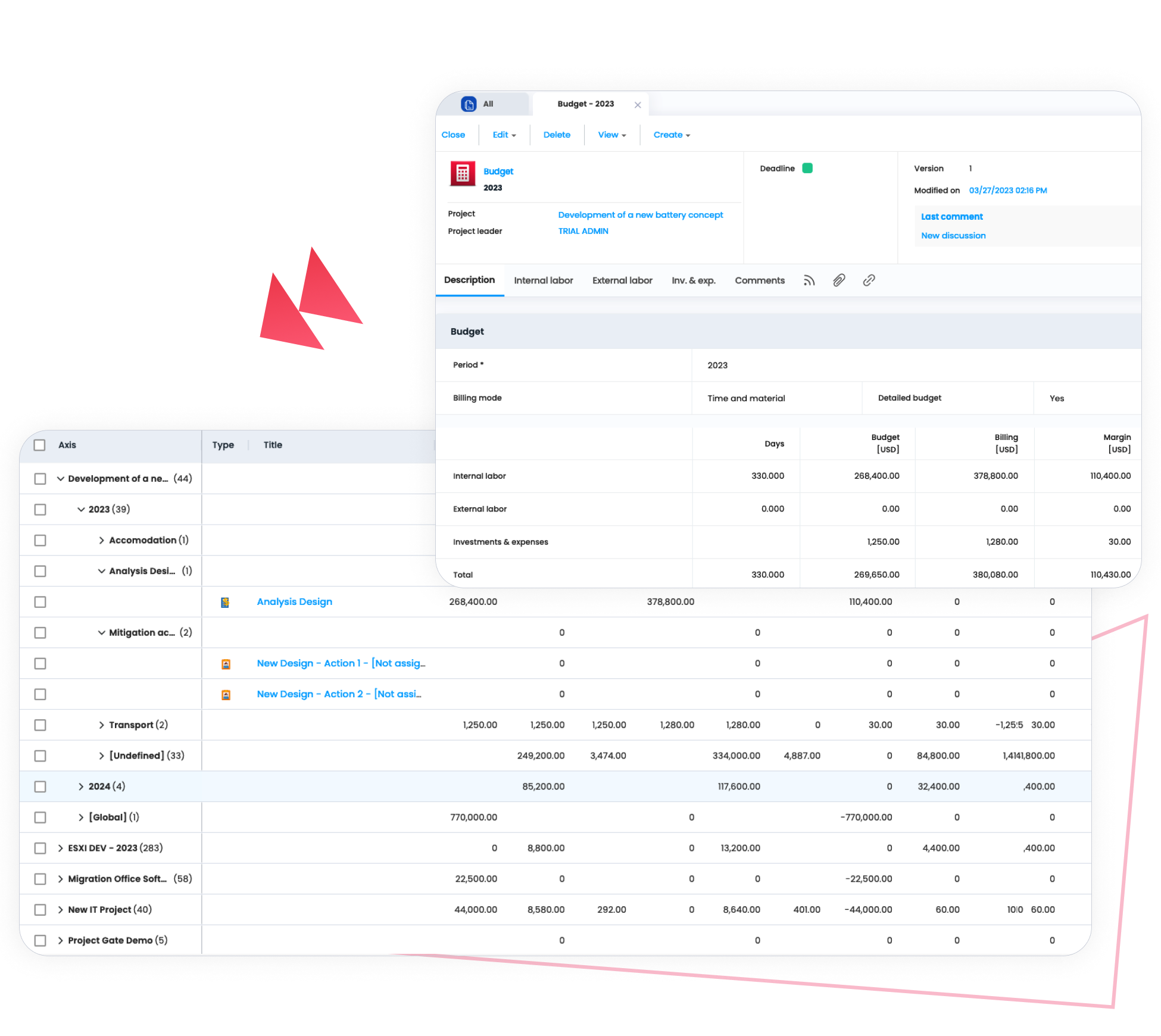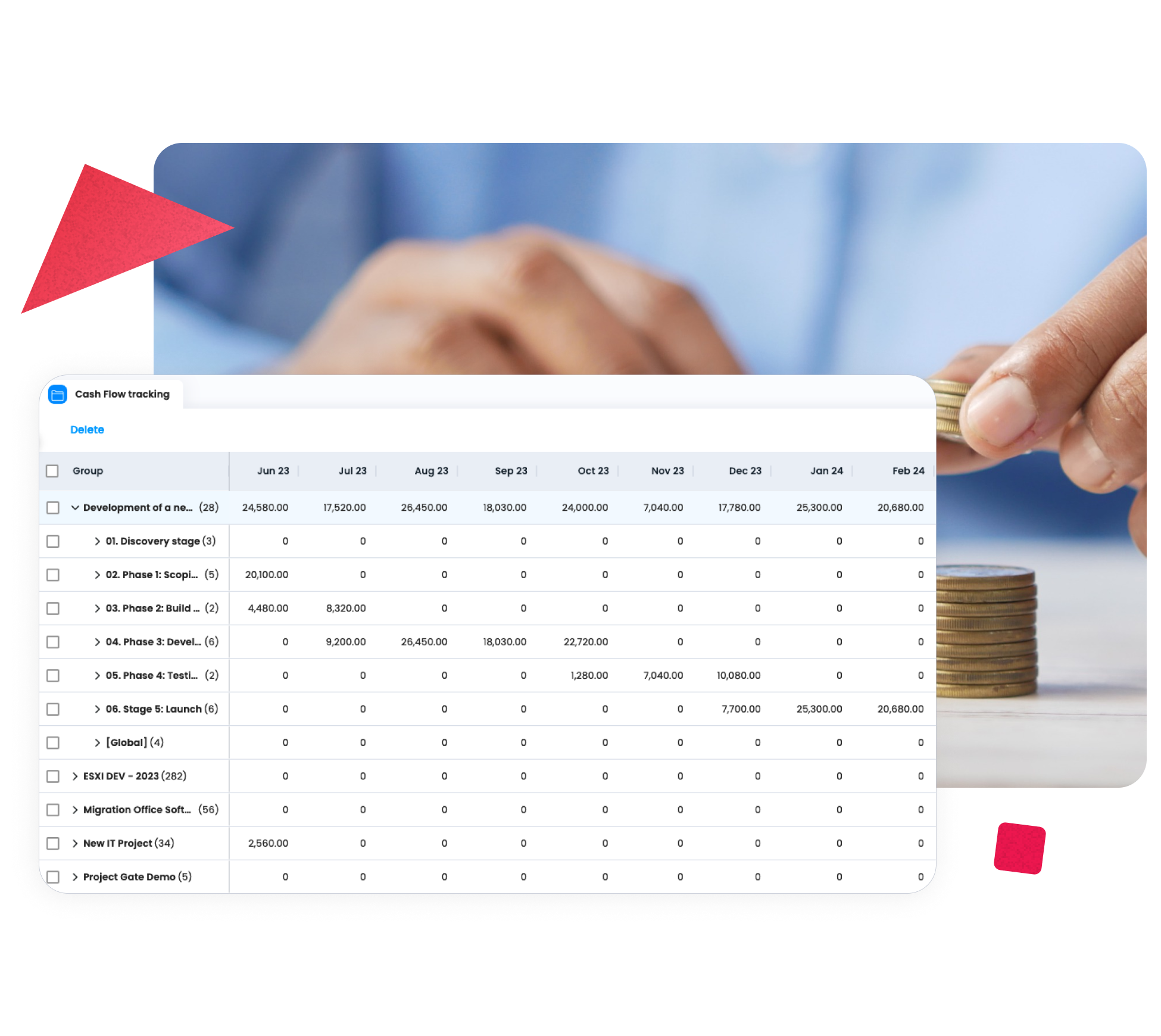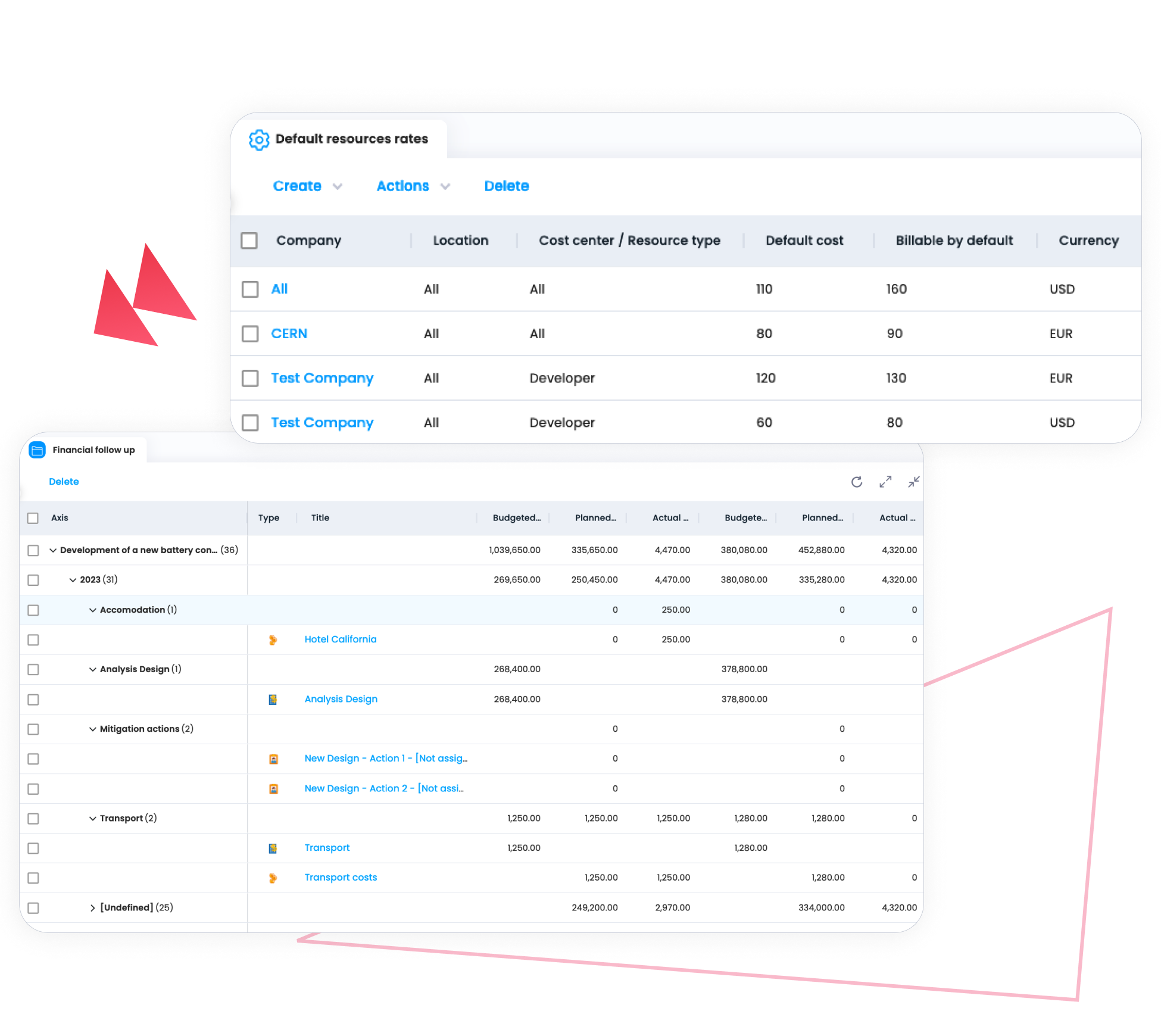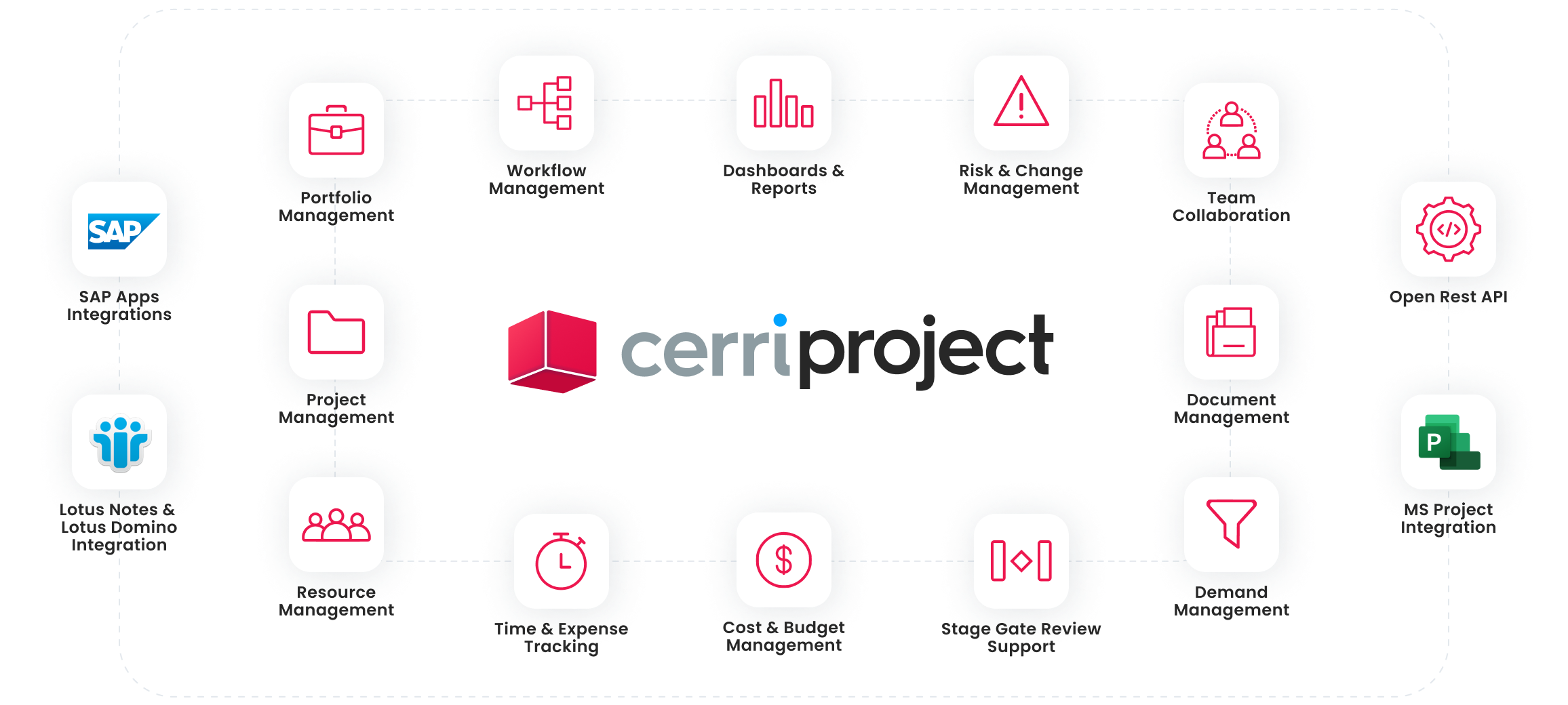













Here are some.

Cost management in project management is the process of planning and controlling the budget of a project or business. It involves estimating, financing, funding, controlling, and managing costs so that the project can be completed within the approved budget. The key elements of cost management in project management include:
- Cost Estimation: This is the process of forecasting the financial resources necessary to execute project activities. This includes direct costs like labor, materials, equipment, and indirect costs such as administration and facilities.
- Cost Budgeting: Once costs are estimated, the next step is to aggregate these costs to establish a cost baseline or budget. It involves allocating the overall estimates to individual tasks or work packages to establish a budget against which project performance can be monitored and controlled.
- Cost Control: This process involves monitoring the status of the project, updating project costs and managing changes to the cost baseline. It ensures that cost overruns are identified as soon as possible, and corrective actions are taken when necessary.
- Cost Reporting: Regular cost reporting is necessary to provide information on the status and future forecast of the project’s costs. This includes variance analysis, which compares actual costs with the budgeted costs.
- Change Control System: It’s crucial to have a robust change control system to manage any changes to the project scope, schedule, or costs. It ensures all changes are documented, evaluated, approved, and communicated before being implemented.
Proper cost management ensures that a project’s budget is accurately estimated, carefully controlled, and continuously monitored, ensuring the project can be completed within the approved budget.
Budget management within project management involves the process of estimating, allocating, and controlling the costs in a project. It’s aimed at making sure the project is completed within the approved budget. Here are the key components of budget management within project management:
- Cost Estimation: This step involves determining how much it will cost to complete the project. The cost estimates should be accurate and revised as necessary throughout the project.
- Budget Allocation: Once costs are estimated, they need to be assigned to different parts of the project. This budget allocation should align with the project plan and reflect when and where resources will be needed.
- Budget Tracking and Control: This involves constantly comparing the budgeted costs with the actual costs to monitor the expenditure. Any discrepancies or variances need to be identified and addressed.
- Forecasting: Based on the current spend rate and progress of the project, it’s important to forecast future costs. This helps identify potential overruns before they occur.
- Change Management: Projects often face changes that can impact the budget. Effective budget management requires a system to approve and track changes that affect the project cost.
- Reporting: Regular budget updates and reports should be created to keep stakeholders informed about the status of the project budget and any potential issues.
Remember, effective budget management can help ensure that the project delivers its objectives within the agreed-upon cost constraints.
In order to maximize your benefit from Cerri Project cost & budget management software you have different options available to you.
- Book a demo with one of our specialists. They will show you how to leverage Cerri Project’s cost & budget management tools to meet the specific requirements of your organization.
- Check out our help portal.
- Contact us for more in depth consulting services.













 Task Management
Task Management 




















 Customization
Customization
